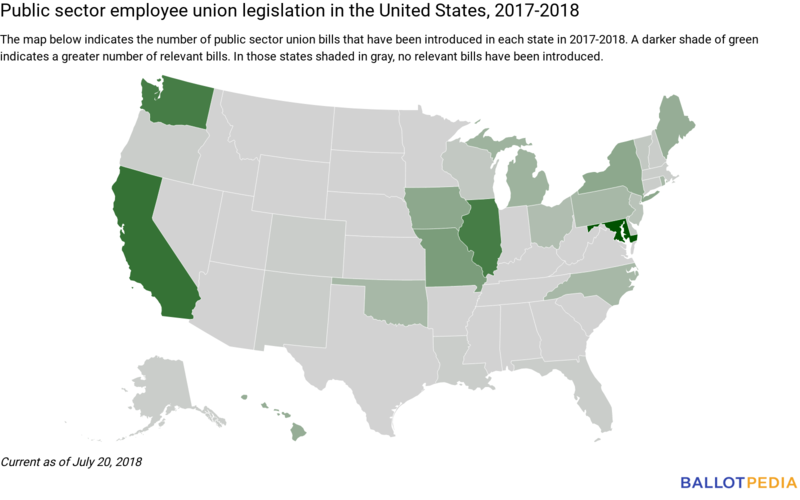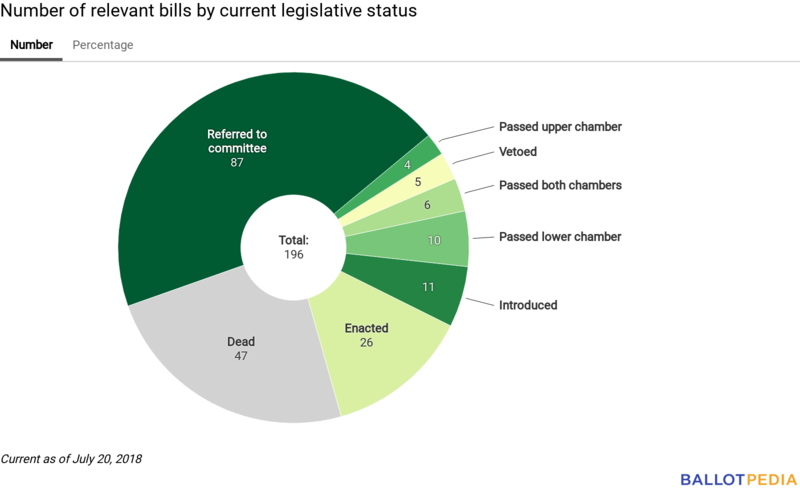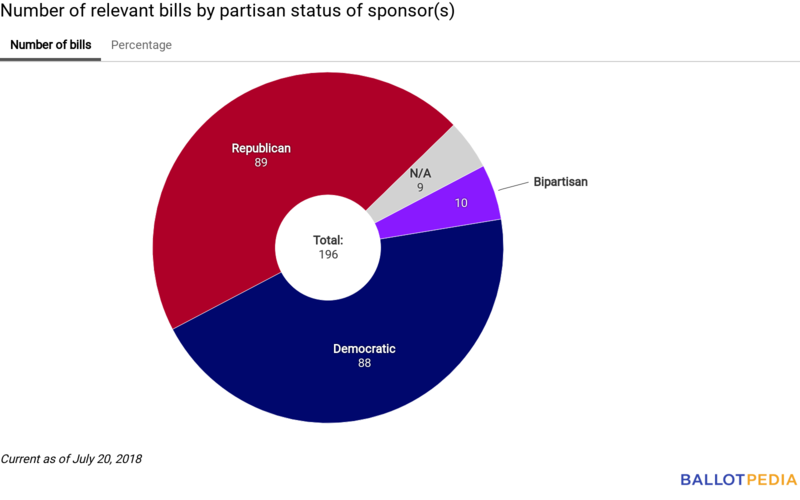Union Station: July 20, 2018
On June 27, the Supreme Court issued its 5-4 ruling in Janus v. American Federation of State, County, and Municipal Employees (Janus). The court ruled that public sector unions cannot require non-member employees to pay agency fees to cover the costs of non-political union activities. Below is a summary of recent legislative and legal actions responding to the ruling.
- California: The National Right to Work Foundation has attached a new court filing to an existing class-action lawsuit, Hamidi et al. v. SEIU Local 1000, which asks that a federal appeals court order SEIU Local 1000 to refund approximately $100 million paid to the union in agency fees. Attorneys for the National Right to Work Foundation argue the union's opt-out process conflicts with Janus. Attorneys further argue the standards established in Janus should be applied retroactively to cover roughly 40,000 current and former state employees who paid agency fees to the union since 2012. (Sources: The Sacramento Bee, National Right to Work Legal Defense Foundation)
- Mark Mix, president of the National Right to Work Foundation, said, "Around the country, the effect of the Janus decision is just starting to be felt. Thanks to this landmark ruling, tens of thousands of California government employees are now a step closer to finally receiving recompense for years of being forced to hand over their hard-earned money to an SEIU union they choose not to join."
- Anne Giese, SEIU 1000’s chief counsel, said, "This lawsuit and similar lawsuits around the country are the next phase of a coordinated and malicious effort to cripple unions and the rights of American working people. Local 1000 has always been, and continues to be, dedicated to adhering to any and all legal requirements including those handed down by the courts while vigorously working to protect the rights of our members."
- Idaho: On July 12, attorneys for the International Union of Operating Engineers (IUOE) Local 370 withdrew a suit filed in a federal appeals court seeking to overturn Idaho's right-to-work law. In the wake of Janus, the United States Court of Appeals for the Ninth Circuit asked the parties to the suit, IUOE v. Wasden, to file briefs on how Janus would affect the suit. (Source: National Right to Work Legal Defense Foundation)
- New York: On July 16, the Erie County, New York, legislature voted 8 to 3 to adopt a resolution barring political groups from obtaining access to county workers' personal information, including home addresses, email address, and telephone numbers. The law exempted employee unions. The Niagara Falls City Council approved a similar resolution earlier this month. (Source: People's World)
- Pennsylvania: On July 11, Rep. Kate A. Klunk (R) circulated a memo proposing legislation that would require public employers to notify non-union employees in writing that they do not have to make payments to unions representing them. The proposed legislation would also disallow payroll deductions for any fees paid to unions. (Source: The Legal Intelligence)
What we've been reading:
- The Journal News, "New York's unions brace for fallout from Supreme Court's Janus decision: Will members pay?" July 18, 2018
- Washington Examiner, "Extending Supreme Court's Janus decision to private-sector unions an uphill battle," July 17, 2018
- Education Week, "More Teacher Strikes Ahead? Union Members Discuss Future Protests," July 16, 2018
- The Heritage Foundation, "The Janus Decision Scored a Major Win for Workers' Rights. Here's What Should Come Next." July 16, 2018
- Governing, "How States Are Making It Harder to Leave Unions," July 16, 2018
The big picture
Number of relevant bills by state
As of July 20, 2018, we are tracking 196 pieces of legislation dealing with public sector employee union policy. No new bills were added this week. On the map below, a darker shade of green indicates a greater number of relevant bills. Click the map for complete information.
Number of relevant bills by current legislative status
Number of relevant bills by partisan status of sponsor(s)
Recent legislative actions
State legislatures did not act this week on any of the bills that Ballotpedia is tracking. This is due to the fact that all but seven states' legislatures have adjourned. Of the seven that remain in session, five are in recess, leaving two (Massachusetts and West Virginia) that acted on legislation this week.
See also
| |||||||||||||||||||||||





